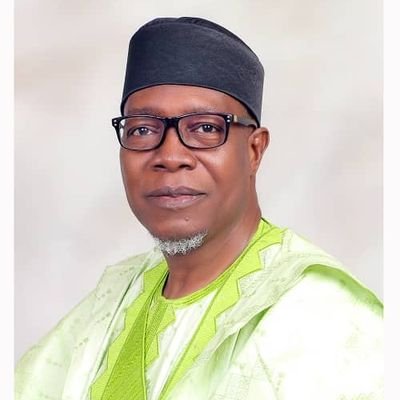The Majority Leader of the House of Representatives, Julius Ihonvbere, has expressed significant concerns regarding the lack of implementation of the Prohibition Against Persons With Disabilities Act by agencies in both the public and private sectors. Speaking at a public hearing organized by the House Committee on Disability Matters in Abuja, he emphasized that a change in attitude towards the law is crucial for its effectiveness. Ihonvbere noted that many Nigerians, including leaders of government agencies, dismiss the Act as inconsequential despite its passage in 2018 under former President Muhammadu Buhari. He lamented the continued marginalization of persons with disabilities (PWDs) and the inadequate recognition of their contributions to national development, pointing out that efforts to raise awareness about the law are only just beginning.
Highlighting the alarming statistics by the World Health Organisation, Ihonvbere revealed that Nigeria is home to approximately 20 million persons with disabilities, making up about 3.9% of the global population. He lamented that not even 5% of the necessary actions for the implementation of the Act have been taken since its promulgation. He argued that adjustments to make buildings accessible to PWDs are not overly complex and criticized the laxity with which the law is treated in Nigeria compared to the strict enforcement found in other countries. Ihonvbere contended that such slackness only reflects a broader societal attitude that still struggles to recognize the essential rights and dignities of PWDs.
The lawmaker identified a significant barrier to the Act’s implementation as the lack of political will among relevant authorities. He called for amendments to the law that would impose substantial fines on corporate bodies and individuals who violate it. Specifically, he proposed a fine of N10 million for organizations and N2 million for individuals, alongside potential jail time. Ihonvbere criticized the public transportation system and additional public services for failing to accommodate people with disabilities, underscoring a troubling societal attitude that appears indifferent to the needs and rights of vulnerable groups.
Continuing his critique, Ihonvbere condemned various Ministries, Departments, and Agencies (MDAs) for their inadequate efforts to promote the Act. He mentioned that Section 2 of the law, which mandates the promotion of awareness about the rights and dignities of persons with disabilities, is not being actively pursued. He remarked that while the National Orientation Agency has just started addressing these issues, it is insufficient given the urgency of the matter, reiterating that awareness of disability issues must be a societal priority. The failure to implement the Act not only threatens the rights of PWDs but also hinders broader socio-economic development.
Translating the law’s provisions into effective practices is not just a matter of legal compliance; it is deeply tied to the understanding that disability can affect any person at any time. Ihonvbere urged society to recognize this inevitability, warning against societal denial about the potential for disability. He stressed that the Act is designed to protect the rights and welfare of PWDs in Nigeria, including granting them liberty, access to education, healthcare, and necessary considerations in emergencies. He argued that neglecting the implementation of such a crucial law could lead to severe socio-economic damage and reflects poorly on the societal values surrounding disability.
Lastly, the Chairman of the Committee, Bashiru Dawodu, provided context for the hearing by explaining its purpose: to gather insights from the disability community concerning the current status of the Disability Act’s implementation. This initiative is essential for identifying obstacles to effective law enforcement and ensuring advocacy and interventions are grounded in the voices of those affected. The discourse initiated by Ihonvbere and Dawodu underscores a collective acknowledgment of the systematic failures in upholding the rights of persons with disabilities in Nigeria, calling for urgent and concerted action to bridge the gap between legislation and reality.














